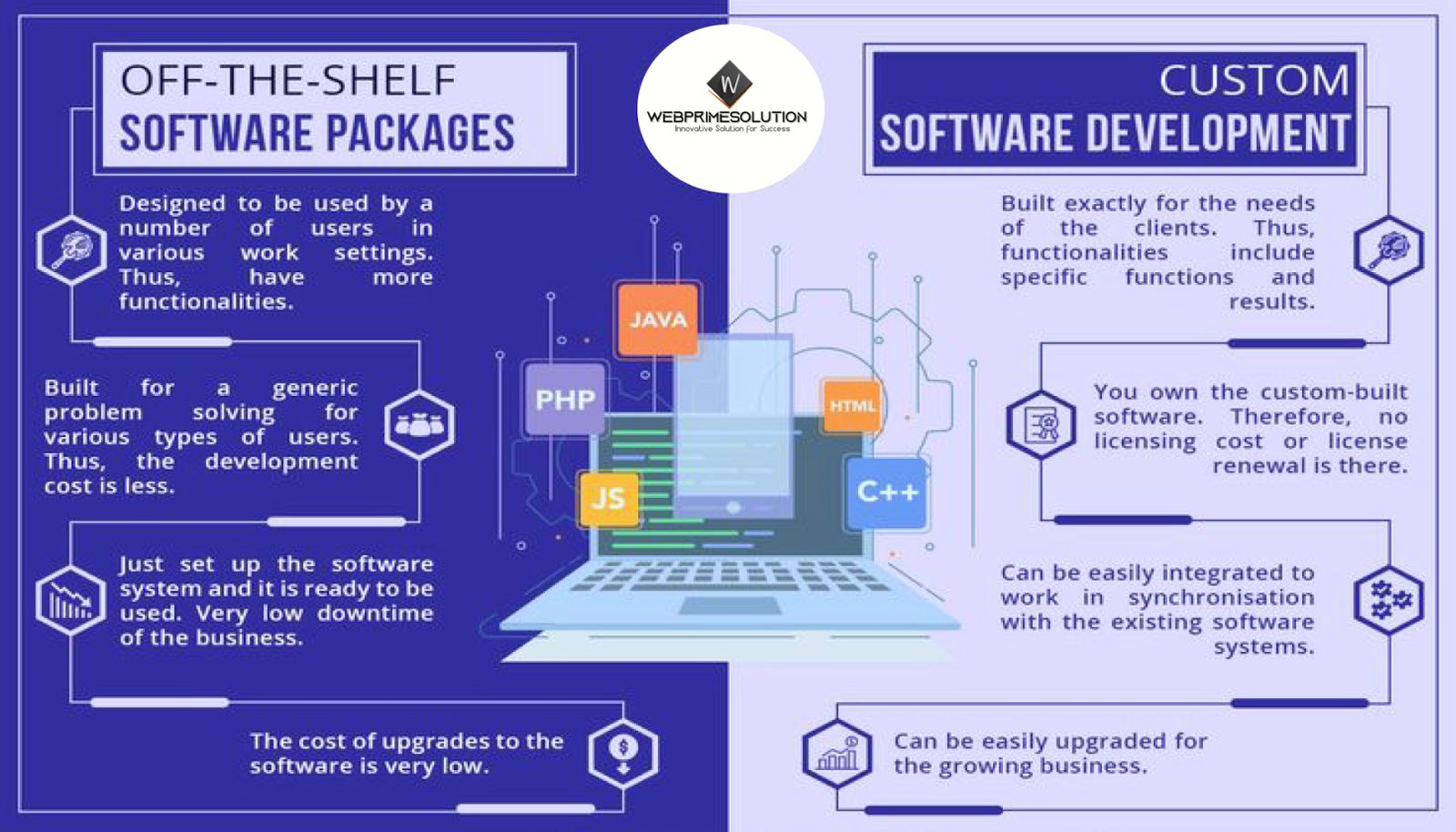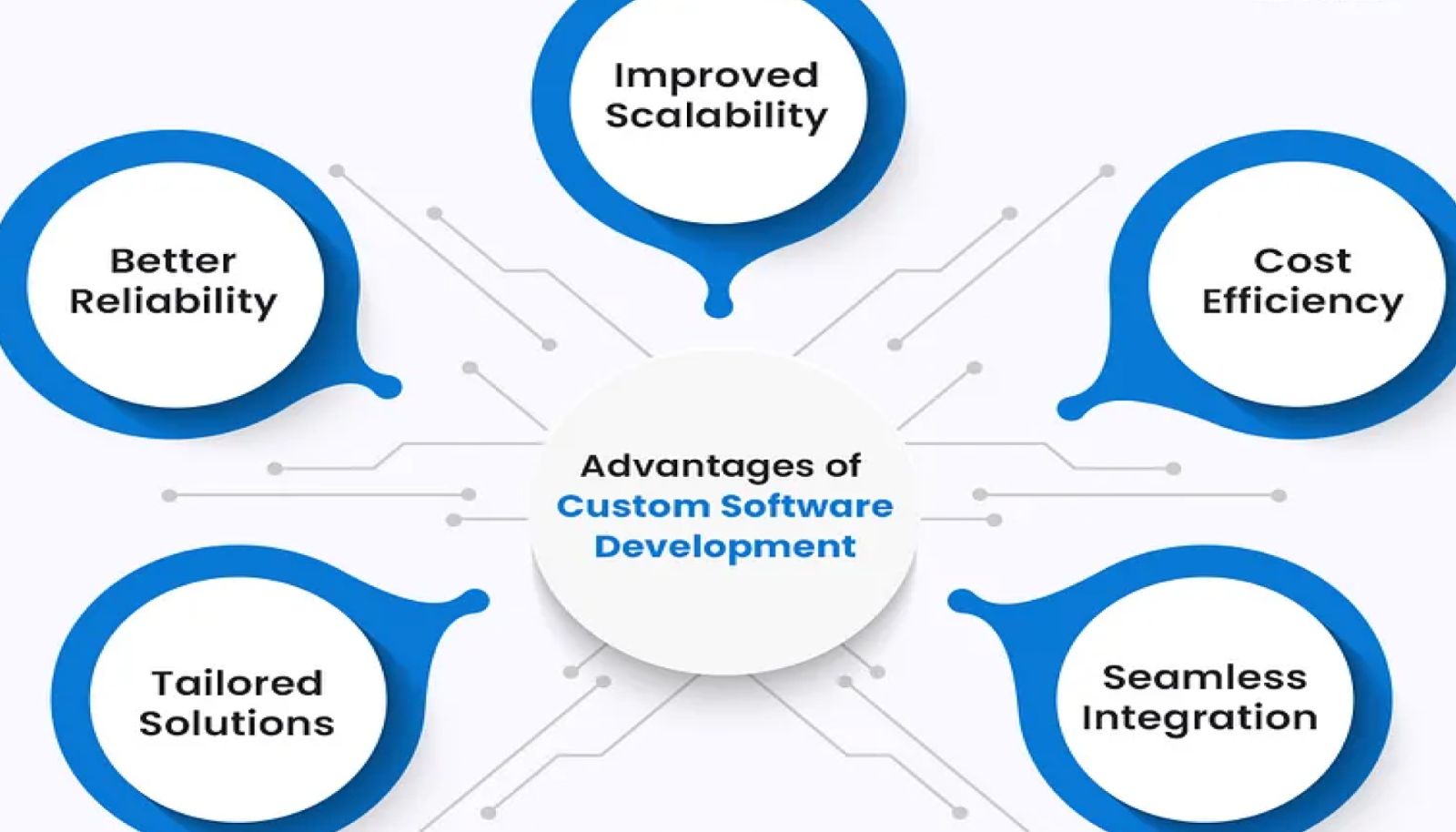Making the Right Choice: Custom Software vs. Off-the-Shelf for Your Business in 2024
In the fast-paced digital landscape of 2024, businesses face a crucial decision when it comes to software solutions: custom software or off-the-shelf options. Understanding the basics of these choices and the importance of selecting the right one can significantly impact your business's operations, efficiency, and ultimately, its success.
Introduction
In this era of rapid technological advancement, businesses encounter multifaceted demands that demand flexible and scalable solutions. Custom software development offers a bespoke alternative, enabling companies to transcend the limitations of pre-packaged software by integrating features tailored to their distinct workflows, objectives, and user experiences. By collaborating closely with experienced developers, organizations can leverage cutting-edge technologies and industry best practices to build software solutions that not only meet current needs but also anticipate future growth and adaptation.
- Understanding the Basics:Software solutions play a vital role in modern business operations, ranging from managing daily tasks to driving strategic decision-making processes. Custom software and off-the-shelf options represent two distinct paths that businesses can take to meet their unique requirements.
- Importance of Choosing the Right Software Solution:Selecting the appropriate software solution is akin to choosing the foundation of your business's digital infrastructure. The decision can affect productivity, scalability, cost-effectiveness, and the overall competitiveness of your organization in the market.
- Overview of Custom Software vs. Off-the-Shelf Options:Custom software refers to solutions that are tailored to meet the specific needs and requirements of a particular business. On the other hand, off-the-shelf software offers ready-made solutions that can be quickly deployed, albeit with limitations in customization.

Custom Software Solutions for Unique Needs
Custom software solutions are personalized to fit the intricate requirements of your business, offering unmatched flexibility and scalability.
- Personalized to Fit Your Business:By working closely with developers, custom software can be designed to align perfectly with your business processes, goals, and unique challenges.
- Flexibility and Scalability:Custom software allows for seamless adaptability to changing business needs and can scale alongside your growth, providing long-term value and ROI.
- Long-term Cost-Effectiveness and ROI:While the upfront costs of custom software development may be higher, the long-term cost-effectiveness and return on investment can be significantly higher compared to off-the-shelf alternatives.

Off-the-Shelf Software: Ready-Made Convenience with Limitations
Off-the-shelf software offers the convenience of quick implementation and lower upfront costs but comes with limitations in customization and flexibility.
- Quick Implementation and Lower Upfront Costs:Off-the-shelf software can be readily deployed, saving time and resources initially but may require compromises in functionality to suit your business needs.
- Limited Customization Options:One of the major drawbacks of off-the-shelf software is the limited customization options available, which can hinder optimal performance and efficiency in your operations.
- Challenges in Adapting to Changing Business Needs:As your business evolves, off-the-shelf software may struggle to keep up with new requirements, leading to potential inefficiencies and obstacles to growth.
Factors to Consider in Choosing Between Custom vs. Off-the-Shelf
Several critical factors should guide your decision-making process when choosing between custom and off-the-shelf software solutions.
- Budget and Resource Allocation:Consider the costs associated with both options, including initial investment, maintenance, and potential training requirements for your staff.
- Scalability and Future Growth:Evaluate how well each solution can adapt to your business's growth trajectory and evolving needs over time.
- Integration with Existing Systems and Data Security:Ensure that the selected software can seamlessly integrate with your current systems and prioritize data security to protect sensitive information.
Making the Decision: What's Right for Your Business?
To make an informed decision, assess your business requirements, consult with IT experts and stakeholders, and weigh the pros and cons of each option for long-term success.
- Assessing Your Business Requirements:Identify your business's unique needs, challenges, and goals to determine which software solution aligns best with your strategic objectives.
- Consulting with IT Experts and Stakeholders:Engage with IT professionals, key stakeholders, and end-users to gather valuable insights and perspectives on the most suitable software solution for your business.
- Weighing the Pros and Cons for Long-Term Success:Conduct a thorough analysis of the benefits and limitations of custom and off-the-shelf software options to make an educated decision that aligns with your business objectives.

Conclusion
In conclusion, the choice between custom software and off-the-shelf solutions is a critical decision that can impact your business's efficiency, productivity, and competitiveness in the market. By understanding the nuances of each option and considering key factors such as budget, scalability, and integration, you can make an informed decision that sets your business up for long-term success.
Recap of Key Points
- Importance of Making an Informed Decision
- Emphasizing the Need for Continuous Evaluation and Adaptation
FAQs:
- How long does it take to develop custom software?
- Can off-the-shelf software be customized to meet specific needs?
- What are the risks involved in choosing the wrong software solution for my business?
